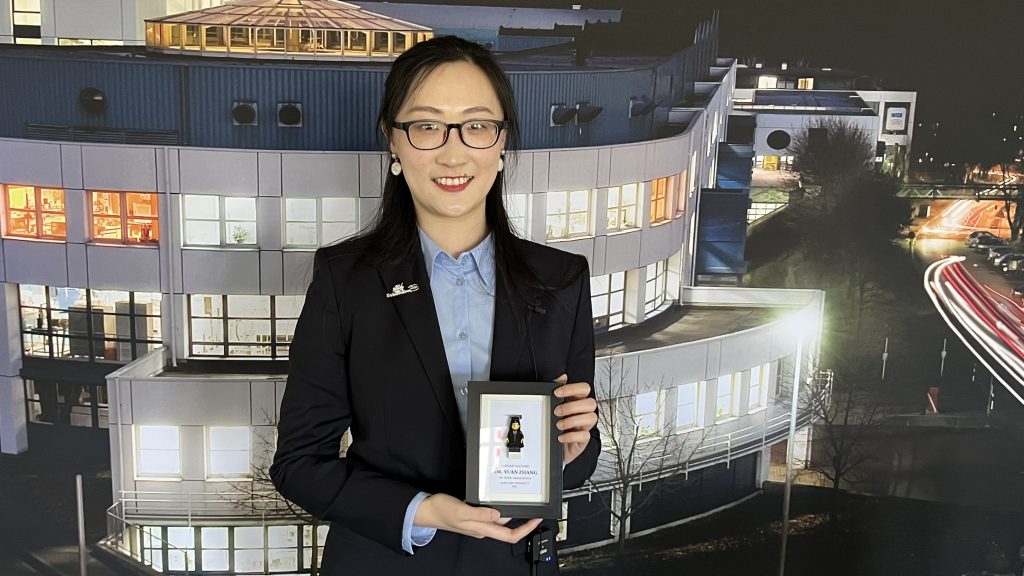Yuan Zhang has successfully defended her Ph.D. thesis titled “Permselective and ion-selective carbon nanopores and next-generation technologies for electrochemical water treatment”. Congratulations!

Yuan Zhang has successfully defended her Ph.D. thesis titled “Permselective and ion-selective carbon nanopores and next-generation technologies for electrochemical water treatment”. Congratulations!

Welcome to our team, Amila Beganovic! Amila is a student at Saarland University and will support our research on next-generation battery materials.
New paper published in Advanced Sustainable Systems on the ion selectivity of MXene electrodes during electrochemical operation. The Tortoise and the Hare is a classic Aesop fable that we heard growing up. We learned that a clever strategy could win over physical advantages in any match of unequal rivals. In the day and age of MXene, this fable returns when we explore MXenes as an electrode material for ion separation. The structure of MXenes impacts ion preference, as was shown before. For example, Amir Razmjou’s team wonderfully investigated the d-layer spacing’s effect on ion selectivity (10.1016/j.memsci.2021.119752). Our work now explores the ion exchange within the nanoconfined electrolyte space provided by MXene layers. We see that monovalent ions like potassium are initially preferred – only to be replaced over time by bivalent ions, like Magnesium. MXene behaves thereby like carbon nanopores, for which such ion exchange processes during continued charging were demonstrated before, among others, by the team of Maarten Biesheuvel (10.1016/j.jcis.2012.06.022). The combination of kinetic and intrinsic ion selectivity may enable novel applications within the energy/water research nexus. However, a higher ion selectivity will have to be enabled for industrial applications.